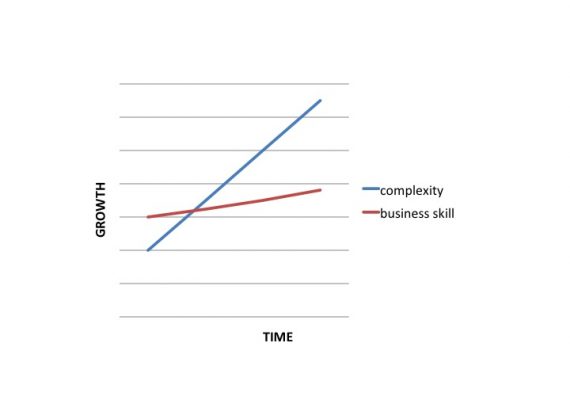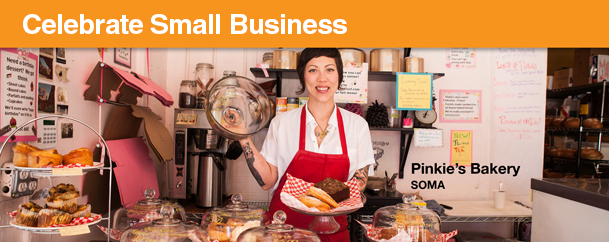The post Wendy’s Wisdom appeared first on Paul Terry & Associates.
]]>At the last Business Planning Class graduation, Wendy Lieu, graduate of the Fall 2012 Business Planning Class, shared her wisdom. As of owner of Socola Chocolatier, Wendy Lieu handcrafts delicious artisanal confections.

Wendy’s Lessons Learned
1. If you wait for perfect conditions, you’ll never do it.
There is never a perfect moment to start a business or take that next step. You will learn as you go along, so don’t wait for the right moment. You will always need to make changes and adjustments along the way. Some things will work and some things won’t. Pivot and keep on moving!
2. Start with one step.
Looking at your to-do list can feel overwhelming and sometimes paralyzing. You can get things done. You just need to start with #1. Prioritize and set short, attainable goals that can be completed in the day and the week.
3. Be obsessed with your numbers.
If this business is truly your calling, create a solid business plan and remember to review it every month. Track your numbers, review the results, and make changes if needed. Your financials are your key business metric.
4. Challenges are a given.
There will be difficulties, so get over it. Laugh it off if you need to and move on. Sometimes you’ll try something out and it doesn’t work out. You’ve lost some money. You tried. It seemed like a good idea but it didn’t work out. Now try something else!
5. Work out – keep active.
Sitting in front of a laptop all day will drain you. Your health is just as important, if not more important, than running your business. Your business starts and ends with you. Take care of yourself.
6. Treat your employees with respect.
Treat employees like family (that you like). Make sure they like working for you, are learning from you, and understand their contributions to the overall success of the business.
7. Surround yourself with successful business owners.
Other small business owners have experienced similar challenges. They can help you. If not, they probably know someone who can. You are not alone. Get out there and connect with others who are a few steps ahead of you and have already solved the problem you are struggling with.
8. Focus ON your business.
Don’t get stuck attending only to daily operations. You need to be paying attention to the business as a whole, its future and its long-term sustainability.
9. Dreams don’t work unless you do.
You will be exhausted and wonder if it’s worth it. That’s normal. Remember that you decided to forgo the easy path in order to control your own destiny. What you get in return is the pride from working on the thing that you are most passionate about. It reminds me of this Jim Carey quote…“You could fail at what you don’t want to do, so you might as well take a chance on doing what you love!”
We are curious to know which of Wendy’s lessons resonates most with you. And also, what words of wisdom have kept you going through the challenging times of new business ownership?
The post Wendy’s Wisdom appeared first on Paul Terry & Associates.
]]>The post Hiring great professional support appeared first on Paul Terry & Associates.
]]>
Why get professional support?
As a small business owner, you will hire outside experts for many reasons — for technology support, social media development, financial planning, bookkeeping, legal issues, personnel reviews, or to improve your business management. You may also benefit from contracting with a business advisor who can be an expert sounding board on business decision-making, holding you accountable and helping you to meet your goals.
What to consider first
First, you need to be clear about why you want help and what you want from any professional. What is your challenge or opportunity?
Next, identify the qualities that would make a professional a good match for you and your business. You want to find someone who:
- Has skills and experience that exceed your needs
- Is ethical, transparent and trustworthy
- Has an approach that fits with your style
- Is available when you need them
How to find “the right one”
It can be hard to know if someone will be a good match just from looking at a website. We recommend asking for referrals from people you know and trust, and who are also in small business. After getting referrals, though, you must still do your own due diligence! You are not just hiring someone for an hour of their time (even if for now that is all you need). You want to find someone who can be a great support person for your business for months and years to come.
Due diligence
Whether you find a professional from a Google search or a trusted colleague, you need to do your homework. When interviewing potential people to work with, it is important to:
- Honestly represent who you are and what you are looking for
- Ask lots of questions to verify this person has the expertise you need
- Read their testimonials and/or reviews
- Understand the terms of the relationship and any contract, including fees.
- Pay careful attention to the questions he/she asks you. (They should be assessing if you are the right fit for them, too!)
(Once you are working with someone, be sure to continue to re-assess your needs and the professional relationship so that you get the outcomes desired as your business grows and your needs change.)
Finalizing the match
Take your time to make a good decision. You need to feel confident that this professional understands you and your needs, will be available when you need them, and will help you implement effective solutions. This person will be an essential business asset – giving you advice that you can use, and helping you to develop systems for your business. With the right support, you will be able to focus your energy on your clients, customers, employees and business goals… and see long-term positive results for your business!
The post Hiring great professional support appeared first on Paul Terry & Associates.
]]>The post Partnership advice from small business owners appeared first on Paul Terry & Associates.
]]>Jane Lin of Urban Field Studio
 Jane and her business partners provide a full range of urban design services, including strategy, design, conceptual architecture, and urban design education and communications.
Jane and her business partners provide a full range of urban design services, including strategy, design, conceptual architecture, and urban design education and communications.
Why did you decide to go into business with other people?
Two or three is better than one! It is good to share responsibility. You can do more as a team. And, it makes life outside of the business more flexible, since we can cover each other when we go on vacation.
What do you love about owning a business with others?
I really like collaborating with my partners. I learn a lot from them. They are not just business partners but mentors. I feel that I contribute to something bigger than just myself when I work as a team. We all contribute energy, knowledge, encouragement, skill, support, and friendship to each other.
What is most challenging about co-owning a business?
Distributing responsibilities is a challenge that requires daily tending. But, that’s what running a business is all about!
How do you deal with this challenge?
TALK. Say exactly what you feel and state what you want. For tougher moments it’s good to have a third partner who can hear you both out. And, when you don’t get your way, have a good attitude about getting what you desire next time and understanding that it’s for the long haul.
What advice would you give to entrepreneurs considering a business partnership?
Think of your potential business partner like a travel partner. Use a similar filter as the one you apply when you are choosing a travel buddy. This is a long journey. You are going to get lost. Can you handle being stuck somewhere with this person? Will they help you figure out what you’re going to do next? Will you choose the same path forward?
Write a partnership agreement. The biggest deal of all is the partnership agreement. It’s like wedding vows and a pre-nup (but not as romantic). The value of your business is maintaining a strong relationship between you and your partner every day. If that is strong, your relationship with your customers will also be strong.
What do you wish you had done differently?
There is not that much I would do differently, but I do need to remind myself to give props to my partners as much as possible. I want to practice gratefulness in what they do everyday. And, I want to make sure we are connected as much as reasonable.
Shamita Dhar of Coyote Coast Youth & Family Counseling
 Shamita and her business partners co-own a counseling business that provides therapeutic support services to teens and families experiencing emotional, behavioral and substance-related difficulties.
Shamita and her business partners co-own a counseling business that provides therapeutic support services to teens and families experiencing emotional, behavioral and substance-related difficulties.
Why did you decide to go into business with other people?
Being a part of a team is extremely rewarding. We each have important strengths, which compliment one another and support a balanced approach when making important business decisions.
What do you love about owning a business with others?
I like the security of knowing that if one of us is having an off day, there are two others dotting “I”s and crossing “T”s. Building a business is filled with opportunities for both successes and failures. It certainly feels better experiencing either case when one is not alone.
What is most challenging about co-owning a business?
It is inevitable that tension will build when one or more partners fails to pull their weight or during periods when a partner experiences a crisis of confidence or some ambivalence about the work.
How do you deal with these challenges?
With solid agreements, direct communication and healthy boundaries—without these, we can end up feeling misused and mistreated. Fairness is essential for a working partnership.
What advice would you give to entrepreneurs considering a business partnership?
Talk through every possibility and establish a solid partnership agreement, no matter how close you may be. In fact, the closer you are, it is even more imperative to outline clear and specific agreements about how to work within the partnership and exit the partnership.
Deborah Bowes of Feldenkrais Center for Movement Awareness

Deborah co-owns the longest established Feldenkrais Center in the Bay Area offering individual sessions, classes and related wellness services.
Deborah’s partnership advice for other small business owners:
Make a plan. It is important to plan for the changes that the future inevitably brings. Not only to decide what will happen, but design a process for working through change.
Communicate openly. Good communication skills are essential, as well as being able to have difficult conversations and still be friends, and work through different goals and values. There will be times when you want to go in a different direction than your partner. If you want the business to grow and develop, you have to accept the difference and see how you can make it work for everyone. Then you can be happy to be in business.
Trust is essential. You have to trust each other; you must trust that your partner will be honest, and fair. You may not be best friends but you both must consider each other’s needs and want the best outcome for both of you.
Are you thinking about going into business with someone else? Check out these three important steps when considering a business partnership or joint venture. If you currently co-own a business, what partnership advice have you received that has made a difference? What words of wisdom would you want to share with others about business co-ownership?
The post Partnership advice from small business owners appeared first on Paul Terry & Associates.
]]>The post Business advice from the field appeared first on Paul Terry & Associates.
]]>In that tradition, I asked some of my clients and past students to share their thoughts on a common growth challenge for small business owners: balancing business skills with the complexity of the business. I recently shared six key considerations on this topic. I was curious to hear from small business owners in the trenches. How did their business skills match the complexity of their business when they first opened? How have they dealt with this tension throughout their business’ evolution? What advice would they want to share with others?
Here is one story…
Heidi Gibson and Nate Pollak
The American Grilled Cheese Kitchen

When Heidi and her partner Nate opened The American Grilled Cheese Kitchen they already had general business expertise, people management skills and financial management experience but they were new to the restaurant industry and lacked specific industry skills. Heidi and Nate’s approach was to be honest with themselves about their own abilities and get help. “We took a cold hard look at what we did and did not know how to do, and then we recruited advisers who could teach us, or hired staff who already had the skills we lacked.”
Heidi and Nate took a similar approach when opening their second location. They had never run a multi-unit operation before. They sought consulting from other multi-unit operators, and hired general managers for each store who had come from multi-unit backgrounds. “We tasked the managers in the stores with the responsibility of ensuring consistency across the stores, not just within their own. For us, hiring managers who brought experiences and skills to the table that we did not have ourselves was crucial.” With the added complexity of two locations, Heidi and Nate decided to outsource their bookkeeping, too. “We hired a bookkeeper who had deep experience with multi-unit restaurants, which brought more expertise to our operation and freed up our time to handle other issues.”
Just this month Heidi and Nate opened their third location and published a cookbook, Grilled Cheese Kitchen: Bread + Cheese + Everything in Between!
Heidi’s advice for other small business owners:
Be brutally honest about what you are good at and what you’re not.
For the things you are not good at, find a way to outsource them to someone who is good at them. This goes double for bookkeeping and accounting if you are in a high-volume, low-margin business.
Ask for help.
There are a lot of resources out there for growing business owners, including Renaissance, SBDC, ICA and most importantly, other business owners. People want to see you succeed and you’ll be surprised at how much they want to help.
Don’t skip financial forecasting.
Many small business owners underestimate their financial management needs and make mistakes with finances when starting or expanding a business. The worst-case scenario is running out of cash, and sometimes growing can really chew up cash. You’re in a much stronger position to secure financing before you run out of cash rather than waiting until you’re down to the wire. Take the time to forecast cash flow, accounting for your growth needs, and start investigating funding options early rather than late.
Check out these tips on balancing your business skills with your business’ complexity and stay tuned for more words of wisdom from small business owners!
The post Business advice from the field appeared first on Paul Terry & Associates.
]]>The post How to Handle Business Complexity appeared first on Paul Terry & Associates.
]]>
If you start a business slowly, you may be able to handle everything yourself. If you only have one or two products or a limited customer/client base, your systems can be quite simple. But…
- Are you financially sustainable?
- Can you generate enough capital or cash flow to reach break-even?
- Is the business profitable?
To create a self-sufficient business, you may have to scale up or increase your business’ complexity. And as you do so, your business skills and management capacity must keep pace. Getting this balance right is an on-going issue. To grow the small business, things get complicated… perhaps more than you can manage well.
- Is it better to wait until you have all the skills to handle the increased complexity?
- Do you go ahead and grow now and hope that you will develop the skills “on the fly” to be successful and sustainable?
- Should you hire someone with more expertise to help you?
To manage your business’ increasing complexity, it is essential to focus on these six key areas:
1. Pay attention to the your weak links.
Your lack of skills as a small business owner in any key area of your business (management, operations, finances or marketing) can limit your success. There is a good chance you already know your areas of weakness. Cash flow management? Operational systems? Managing others? Take the time to identify a key weakness and make it a strength. (Think about a simple SWOT analysis.)
2. Improve your own business skills now.
Find the help you need NOW before your current knowledge limits your business. This may mean taking a class, reading a book, following relevant blogs, finding a peer mentor, or working with a business adviser or coach. The key is to put aside some regular time (every day, week or month) for your personal education.
3. Bring in others with the skills you need.
Being a small business owner does not mean that you have to know how to do everything yourself or that you have to do it all alone. Often the smartest approach is to hire someone who can do a particular business task better than you. This could be an outside professional or an employee with skills in the specific area of need, such as a bookkeeper to help you manage cash flow, or an employee good at sales. (It may only be a short-term need until your internal systems improve.)
4. Take a leadership role.
You may have started your business because you love making your product. But to create a successful business you may need to hire someone else who can make the product at a cheaper price. This could be an employee that works directly under your supervision, or an outside manufacturer or co-packer. (See these six tips when planning to hire employees and step into a leadership position.)
5. Put good systems in place.
It is challenging to take on larger projects, additional clients or more employees if you don’t have clear (and documented) systems. It is hard to hire someone else to help you if you need to take a lot of time to show them how to do the work because it is all in your head instead of written down. Without good systems, it is also harder to take a break!
6. Don’t stop planning.
Growing a business can sometimes feel like a set of spiral movements around and around—seemingly sending you one place and then another. Yet your business challenges and your careful responses to those challenges can create a great foundation for growth. A solid business plan can also help you predict and prepare for the complexities ahead. Remember, planning isn’t a one-time thing. It helps you to take the pulse of your business—over and over again. So, take the time to identify your weaknesses, challenges and opportunities and create a plan to take your business to the next level.
At Paul Terry & Associates, we work with many small businesses that are confronting the tension between management capacity and business complexity. Some clients are eager to grow their businesses but feel stuck, unsure how to reach the next level or increase sales given current skills or resources. Some clients are struggling to keep up with the demand for their products/services. Using an action planning approach, we work with small business owners to assess the current situation and create a road map to reach their goals. Our goal is to help clients prepare for the road ahead, manage the increasing complexities, and build businesses that are profitable and sustainable for the long term.
The post How to Handle Business Complexity appeared first on Paul Terry & Associates.
]]>The post Happy Entrepreneurship Month – Give Thanks! appeared first on Paul Terry & Associates.
]]>This is a wonderful thing! It is important to recognize small businesses and their impact in our communities. Small business owners deserve our attention and our thanks because we all benefit from their passion, dedication, innovation and hard work.
I am thankful to all the small business owners that I teach and work with every day, and for the small businesses that improve life in my neighborhood. I am also thankful to the organizations and small business support professionals who make it possible for entrepreneurs to launch and to succeed.
Last month Renaissance Entrepreneurship Center gave awards to three remarkable women whom I had the pleasure to teach in Renaissance’s Business Planning Class. This video, which highlights their stories, illustrates why it is so important that we support the small businesses and small business owners around us.
Take a look, and be sure to thank the entrepreneurs in your life. They need and deserve our support and encouragement… not just this month but all year long!
Happy Thanksgiving.
The post Happy Entrepreneurship Month – Give Thanks! appeared first on Paul Terry & Associates.
]]>The post Entrepreneurs of the Year appeared first on Paul Terry & Associates.
]]>Established Entrepreneur of the Year Award

Wendy Lieu, owner of Socola Chocolatier, had already been operating her chocolate business part-time with her sister for many years when she took the Business Planning class in 2012. With the business skills and confidence she gained in the class, she was ready to take the business to the next level. In early 2014 Wendy and her sister Susan opened their retail shop on Folsom Street in San Francisco. They now employ five people and also have a thriving wholesale business!
Emerging Entrepreneur of the Year Award

Antoinette Sanchez, owner of Endless Summer Sweets, was a long-time Renaissance employee who worked with me to coordinate the Business Planning Class at Renaissance SoMA. She took all the Renaissance classes, received access to financing support from Gwendolyn Wright of The Wright Consultants, and studied with La Cocina. She left Renaissance two years ago to focus full-time on bringing funnel cakes and kettle corn to parties, events and street festivals all over the Bay. She will soon open her own store on Shattuck Avenue in Berkeley!
A graduate of the Business Planning class and a long-time Renaissance business incubator tenant, Brigette Renee LeBlanc, owner of LeBlanc and Associates, LLC has used all her training, support and referrals to develop her own business providing full-service event consulting to Bay Area clients.
These three women were committed students, wrote great business plans and took what they learned and applied it to their businesses. We are so proud of them and what they have accomplished. Please join me in congratulating these amazing small business owners!
Join Renaissance at City View Metreon on Wednesday October 7 at 5:30pm to honor the Entrepreneurs of the Year and enjoy the Renaissance pop-up café, dessert bar and marketplace. Many Business Planning Class graduates will be in attendance. Many graduates have generously donated their products and services to the auction, including Heidi Gibson of The American Grilled Cheese Kitchen, Seán Patrick of Calibur, Gail Lillian of Liba Falafel, Nick Hormuth of Pedal Inn Bike Tours and Provisions, and Steve Fox of Urban Putt. We invite you to attend the Gala, reconnect with business colleagues, and enjoy the program plus networking, food and music!
The post Entrepreneurs of the Year appeared first on Paul Terry & Associates.
]]>The post Small Businesses Giving Back appeared first on Paul Terry & Associates.
]]>According to a study by The Fidelity Charitable Fund and Ernst & Young, most business owners are also inspired to give back to their communities — 89% of entrepreneurs donate money, both personally and through their companies, to support charitable causes, while 70% donate their time.
Because small businesses are well connected to their communities and motivated to provide support, they are in a great position to do a lot of good!
Giving back doesn’t have to mean a large financial outlay or donating hours and hours of your time. By connecting how you give (and to whom) with your interests, skills, services or products, you can contribute in a meaningful way and have a large impact.
Your small business can also get a lot in return. The causes and organizations you support will differentiate your business from competitors and can, in turn, strengthen your ties to customers and clients. Giving back to your community can increase your visibility, increase customer or client loyalty and also increase employee morale.
Here are some ways that you can contribute – and some San Francisco Bay Area business owners who are doing just that!
- Mentor other small business owners. There is a strong possibility that your success is due in part to the people that helped you along the way. You, too, can help others be successful. Do you have business expertise that could be valuable to someone either inside or outside your industry? Heidi Gibson, owner of The American Grilled Cheese Kitchen has made mentorship a priority. She offers internships to new food entrepreneurs and volunteers her time to help small business entrepreneurs in Renaissance Entrepreneurship Center’s Business Planning Class with their business financials.
- Organize a volunteer day for your employees to boost morale and foster increased engagement and team-building. You don’t have to have employees to volunteer. My volunteer experience with fellow Potrero Dogpatch Merchants Association members at the San Francisco-Marin Food Bank was a fun bonding activity for our local merchants association.
- Share your knowledge/skills with local organizations. Create a partnership with a local organization that is in alliance with your business and offer your expertise. Avital Food Tours offers unique culinary adventures in the Mission District, the Haight Ashbury, North Beach and Union Square. Owner Avital Ungar volunteers with the Legacy Bars and Restaurants Project run by SF Heritage. She has helped train tour guides for SF Heritage’s Haas-Lilienthal House and organized a pop-up speakeasy to raise money for the Project.
- Create customer incentives. Commit to donating a certain percentage of each sale to an organization, offer discounts to customers who support particular causes, or create a contest to encourage customers to engage. Shivani Ganguly, owner of Bom Dia Market in San Francisco’s Noe Valley neighborhood supports the non-profit Kitchen Table Advisors. In February, she supported them by donating all proceeds from the sale of prepared foods on one day.
- Donate products. Donating products or giving away samples at events can be a great way to reach new customers and support a cause that you believe in. Claire Keene of Clairesquares frequently donates delicious products to support organizations doing good work. She recently donated her treats to a silent auction supporting Techbridge, an organization that inspires girls to discover a passion for technology, science and engineering.
- Donate to organizations in line with your values. Supporting organizations that you believe in shows your customers your business’ values. Keith Goldstein, founder of Everest Waterproofing and Restoration Inc. is committed to donating a minimum of 10% of pre-tax profits to charitable organizations, both local and international, He also sponsors Tibetan refugees for jobs, helping them create new lives for themselves and their families in the United States. Neal Gottlieb, founder of Three Twins Ice Cream launched an initiative called Ice Cream for Acres. Three Twins donates money to land preservation efforts every time they sell a cup or pint of ice cream.
- Join a non-profit board. Ken Stram, owner of 2Bridge Communications is a board member of the Golden Gate Business Association, the city’s LGBT chamber of commerce. “I’m a bit introverted,” he says, “so being a board member gets me out of the office and keeps me engaged with the LGBT small business community. The board experience is sharpening my leadership and collaboration skills, too. The experience is also good for business—it positions me as a leader and puts me in front of an important audience on a regular basis.”
The Volunteer Center helps to match Bay Area non-profits with individuals looking to give back and get involved at a deeper level. Check out their Board Match events.
There are many ways to make an impact. How do YOU give back? Who are the small businesses owners that you know who are making a difference?
The post Small Businesses Giving Back appeared first on Paul Terry & Associates.
]]>The post Small Business Week! appeared first on Paul Terry & Associates.
]]>
Don’t miss it! Small Business Week begins and ends with Sidewalk Sales in 20 neighborhoods throughout the city, Saturday, May 16th and Saturday, May 23rd.
The kick-off event on Monday night, May 18th is not to be missed (tickets mandatory, but only $20). Flavors of San Francisco is a great opportunity to network with small business owners and small business resource organizations and eat delicious food from San Francisco restaurants. (Other mixers are taking place throughout the week, too.)
Friday, May 22nd will be the heart of it all — the Small Business Conference includes over 50 workshops jam-packed with info on a variety of topics relevant to small business. (Workshops are FREE but space is limited.)
Please participate! Small Business Week is a great opportunity to network, gather good information and celebrate the small business community in San Francisco!
I’m proud to see Renaissance Entrepreneurship Center graduates featured on the Small Business Week website: Pinkie’s Bakery, Frisco Fried, Socola Chocolatier and Van Meter Williams Pollack.

The post Small Business Week! appeared first on Paul Terry & Associates.
]]>The post Getting into Business appeared first on Paul Terry & Associates.
]]>
Passion is essential
First, passion and conviction are essential. You need to know who you are and what you want to do. Then there is the choice of business model and knowing your product or service inside and out. You want to be ready to eat, drink and breathe business ownership… and wake up and do it again the very next day.
Know your market
Even if you have the best business idea and you are confident in your ability to make a product or provide a service and set up a successful business model, the great arbiter of success is the marketplace. Your business concept must be viable, not just to you, but to the people who will be your target market. How do you know your business expectations are not fiction? To get the answer, you must talk to people, survey potential customers or clients, and test your assumptions.
Test your concept
Once you have an idea of the marketplace, you want to test the concept. You can pop up in someone else’s space or test your product or service at a street fair or makers fair. You can get friends to hold events and sell your product in their living rooms. You can convince a friend who has a retail shop to let you set up a trunk show. If all goes well, the experience will make you feel more secure that your business idea is a good one and that you want to own and run a business.
Can you now say YES to these 5 key questions?
- Do I really enjoy being in business?
- Can I attract the customer or client who will appreciate my business and will pay for it?
- Am I good with customers and can I provide excellent service?
- Does my business model make money or will it at least break even “soon”?
- Can I envision myself persevering for the next 12 to 18 months to really establish my business?
Time for planning
Some degree of prior business planning is essential. To help guide you, you can take a class, read a book, or ask an experienced business owner for support. However you do it, the purpose of a plan is to define your business offerings, specify your market, outline the essential management skills needed, and create realistic financial projections with a well-timed series of action steps. Your final plan will be a useful document for potential investors, funders or business partners. But the primary purpose for writing a plan is for the process itself. It forces you to be objective and critical, identifying weaknesses, challenges and opportunities and setting benchmarks to track progress. Ultimately, it will give you confidence to get into and continue with the business.
Take the plunge
So you have made some initial sales, carved out time on weekends to work on the business and you are still excited about doing it. Actually, it is all you can think about. How do you take the plunge from part-time to all-in?
There are many different ways to do it.
- Wait to launch until you have raised enough start -up capital – either through personal savings, bank loans or crowd fundraising.
- Convince your friends and family to lend you money (perhaps with no interest) and agree that you do not have to pay them back for at least three years.
- Approach your employer and negotiate to work only four days a week and use that extra day to work on your business.
- Move from full-time employment to a contractual arrangement so that you can set your own hours and take time off when needed for the business.
- Find an active or silent business partner with capital to invest in the new business and cover business expenses for the first year.
- Marry well and/or use your future inheritance to support your entrepreneurship habit!
- Quit your job and go all in right away, using credit cards to get you through the cash flow negative start-up period.
The path to small business ownership is unique for each entrepreneur. It depends on your tolerance for risk, your access to capital and cash flow, your skills and experience running/managing a similar enterprise, and your support systems.
Time, money and the prospect of failure are common hurdles for almost every small business owner starting out:
- How do I find enough time to devote to my business?
- Do I have enough funds to support myself while the business is developing/evolving in the first 6, 12 or 18 months?
- Can I respond well to short-term failures as I navigate my way to long-term success?
You may struggle to find the right strategy to get your business off the ground but if you have passion for your business idea, some success from product or service testing, solid financial projections, and a strong support network… YOU CAN DO THIS!
Are entrepreneurs crazy? Sometimes yes. But that’s just what may be needed to jump in and swim! Some start in the shallow end of the pool and tip-toe down the stairs. Others lower themselves down the ladder until they are fully immersed but continue to hold onto the edge. And then there are the ones who leap off the diving board straight into the deep end. No matter your approach, just make sure you can see the edge and make your way back to solid ground as needed. But if you really want to swim in the world of small business ownership, you first just have to get into the water!
The post Getting into Business appeared first on Paul Terry & Associates.
]]>
